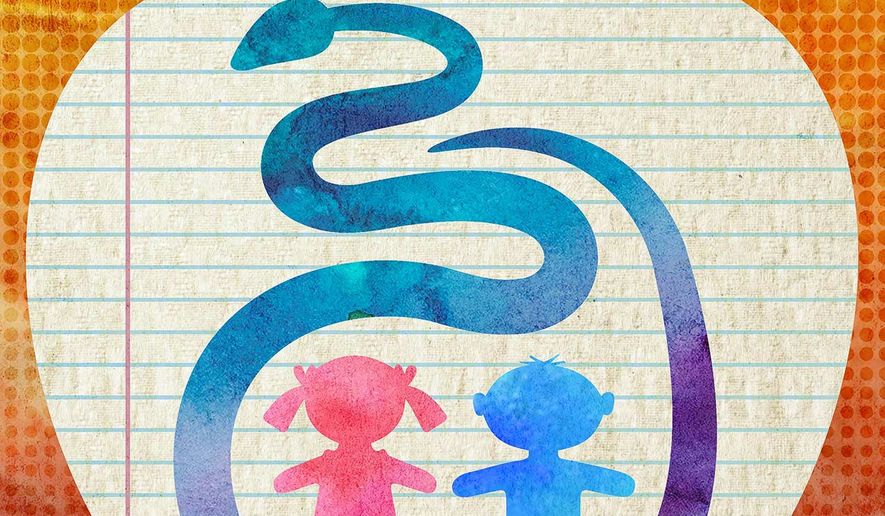OPINION:
Over the last few weeks, calls for the decolonization of the West have saturated discourse online and the streets across North America, Europe and Australia. Protesters have amassed in cities and towns in mostly Western countries carrying signs or chanting statements that range from “Queers for Palestine” to justifying the murderous actions of Hamas.
But this is not a spur-of-the-moment rallying cry or theory relegated to the halls of academia. It is the culmination of political programming taught to students from kindergarten to college.
To the outside observer, ethnic studies is packaged as an anthropological and historical study of non-White cultures. Its marketers advertise it as teaching the truth about other cultures. But the product inside is not as advertised, turning out to be political programming intent on attacking and destroying Western civilization in the quest to gain power.
In fact, decolonization is a principle of liberated, or critical, ethnic studies and is embraced by groups such as Black Lives Matter, the Democratic Socialists of America, Hamas, the American Library Association and LGBTQ activists. It is a demand to deconstruct or remove Western influences from positions of power, elevate “other ways of knowing,” and promote non-White, non-male, non-Western groups.
In 2017, Oregon required ethnic studies courses for K-12 students and created an advisory group to oversee its implementation. The law defines ethnic studies as the “instruction of public school students in kindergarten through grade 12 in the histories, contributions and perspectives of ethnic minorities and social minorities.”
Sounds harmless enough. But in practice, ethnic studies took on a more radical political bent. The advisory committee expanded the definition, adding that it needed to “assist students in developing a critical lens to see the world, and to be politically, socially and economically conscious about their personal connections to local and national history by understanding systems of power at the root of American society.”
In other words, the committee engaged in a classic bait-and-switch maneuver that is the modus operandi of education activists.
Ethnic studies programs require students to start each class with a “land acknowledgment.” For example, a model preschool lesson titled “What Is Normal?” begins the class period by having 4-year-olds recite the following:
“We remind ourselves that we are sitting on the land of the [Indigenous land] in [city, state].” Unlike the daily routine of reciting the days of the week, this seeds the idea in the youngest learners’ heads that they are living on “stolen land.” It is an insidious, subtle statement meant to program students who cannot even tie their shoes to believe that they are either “colonizers” or the “colonized.”
In ethnic studies, decolonization is not just an academic theory, but a call to action. This became evident in a viral post from Teen Vogue‘s Najma Sharif in response to the terrorist attacks on Israel carried out by Hamas. “What did y’all think decolonization meant? Vibes? Papers? Essays?” she posted.
Ms. Sharif admits that decolonization is not just an idea to be pondered in the classroom but practiced openly. Tragically, it appears its practice includes the massacre of innocent women and children.
Decolonization, as an actionable ideology, is visible in a Boston Public Schools ethnic studies unit titled “Resistance, Transformation, Action, and Change.” Course content includes ideologies and past radical movements such as Marxism, postcolonialism, the Zapatistas, the Black Panther Party, the Young Lords Party and Cuba’s communist revolution. The curriculum serves as background knowledge necessary for students to “be inspired” to “resist oppression” and “enact change.”
Advocates of decolonization are using the U.S. education system to sow the seeds of resentment and guilt between races, and to train children to dismantle Western civilization.
Instead, American K-12 schools should be teaching students about the rich histories and cultures around the world. We must stop our academic institutions from churning out youth activists and return to academic mastery and virtuous citizenship.
• Rhyen Staley is a researcher at Parents Defending Education.




Please read our comment policy before commenting.